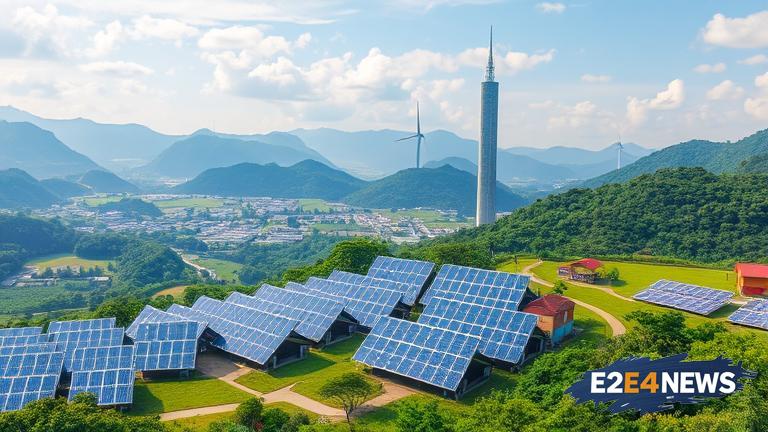Taiwan has been actively promoting the development of renewable energy in recent years, with a focus on solar and wind power. The government has set ambitious targets to increase the share of renewable energy in the country’s energy mix, aiming to reduce greenhouse gas emissions and mitigate the impact of climate change. As the global demand for renewable energy continues to rise, Taiwan is well-positioned to become a major player in the industry. The country’s strategic location and favorable climate make it an ideal location for solar and wind farms. In addition, Taiwan’s highly developed manufacturing sector and skilled workforce provide a strong foundation for the production of renewable energy equipment. The government has implemented various incentives and policies to encourage the development of renewable energy, including tax breaks, subsidies, and feed-in tariffs. These efforts have led to a significant increase in renewable energy production, with solar power capacity growing by over 50% in the past year alone. Taiwan’s renewable energy sector is also attracting significant investment from abroad, with major international companies such as Google and Microsoft investing in local renewable energy projects. The country’s renewable energy industry is expected to continue growing rapidly in the coming years, driven by increasing demand from both domestic and international markets. As Taiwan continues to transition towards a more sustainable energy mix, the country is also exploring new technologies and innovations in the field of renewable energy. This includes the development of floating solar panels, which can be installed on water surfaces, and advanced energy storage systems. The government is also promoting the use of electric vehicles, with plans to increase the number of charging stations across the country. Furthermore, Taiwan is working to improve energy efficiency in buildings and industry, through the implementation of smart grid systems and energy-saving technologies. The country’s renewable energy sector is also creating new job opportunities and driving economic growth, particularly in rural areas where many renewable energy projects are located. In addition, Taiwan’s renewable energy industry is helping to reduce the country’s dependence on imported fossil fuels, improving energy security and reducing the impact of price volatility. The government is also working to promote international cooperation and knowledge sharing in the field of renewable energy, through participation in global forums and agreements such as the Paris Agreement. Overall, Taiwan’s efforts to boost renewable energy production are paying off, with the country making significant progress towards a more sustainable energy future. As the world continues to transition towards a low-carbon economy, Taiwan is well-positioned to play a leading role in the development of renewable energy. The country’s highly developed infrastructure, skilled workforce, and favorable business environment make it an attractive location for investment in the renewable energy sector. With its strong commitment to reducing greenhouse gas emissions and promoting sustainable development, Taiwan is set to become a major player in the global renewable energy industry.
